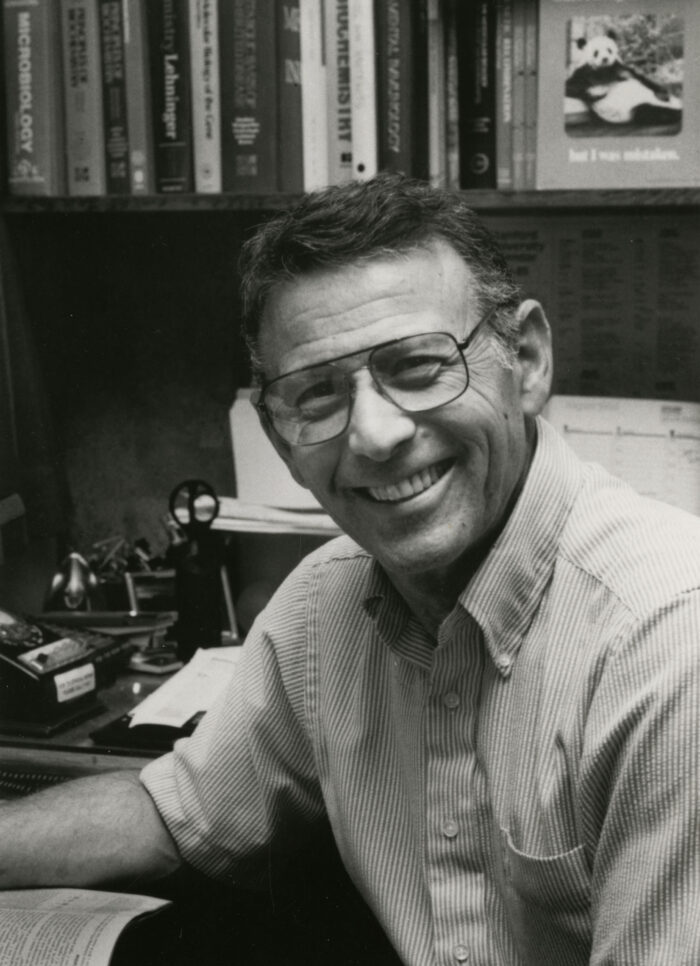
Paul Berg, a former associate professor of microbiology at Washington University School of Medicine in St. Louis and a winner of the Nobel Prize in chemistry, died Wednesday, Feb. 15, 2023, at his home on the Stanford University campus in Palo Alto, Calif. He was 96.
Berg won a Nobel Prize in 1980 alongside Walter Gilbert and Frederick Sanger for their studies of the biochemistry of nucleic acids. Berg was the first person to construct a recombinant DNA molecule — a molecule containing parts of DNA from different organisms — by inserting DNA from one virus into another. His work led to the development of genetic engineering, a powerful approach that has transformed medicine and agriculture.
Berg came to Washington University School of Medicine in 1954 as a research fellow and instructor to study enzymes under Arthur Kornberg. Kornberg would go on to win the Nobel Prize in Physiology or Medicine in 1959, with Severo Ochoa for their discovery of the mechanisms in the biological synthesis of RNA and DNA.
In Kornberg’s lab, Berg discovered a previously unknown class of biological compounds involved in the synthesis of biomolecules. Berg joined the faculty of the School of Medicine as an assistant professor of microbiology in 1955 and was promoted to associate professor in 1957. In 1959, he moved to Stanford University to help Kornberg set up a new biochemistry department.
Read more about Berg in the obituary in The New York Times.